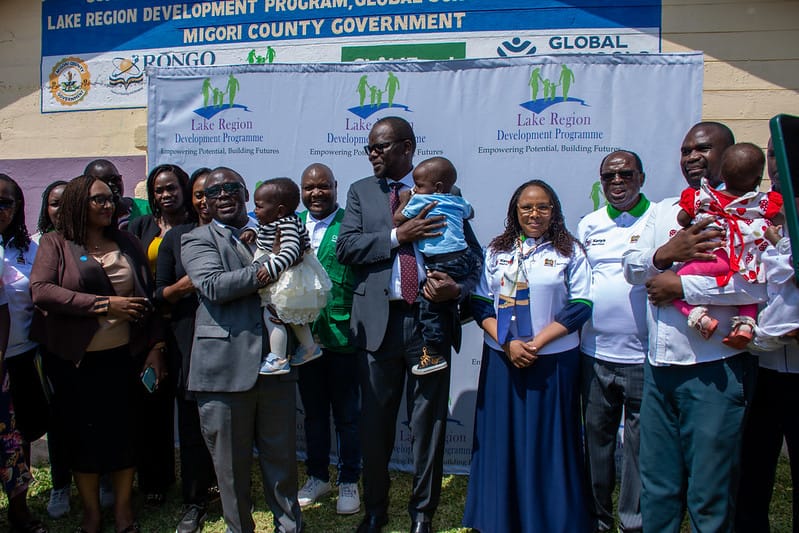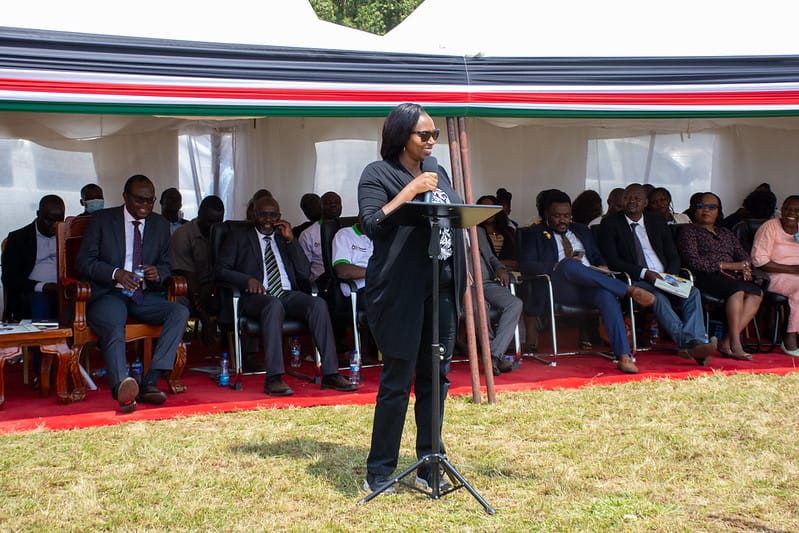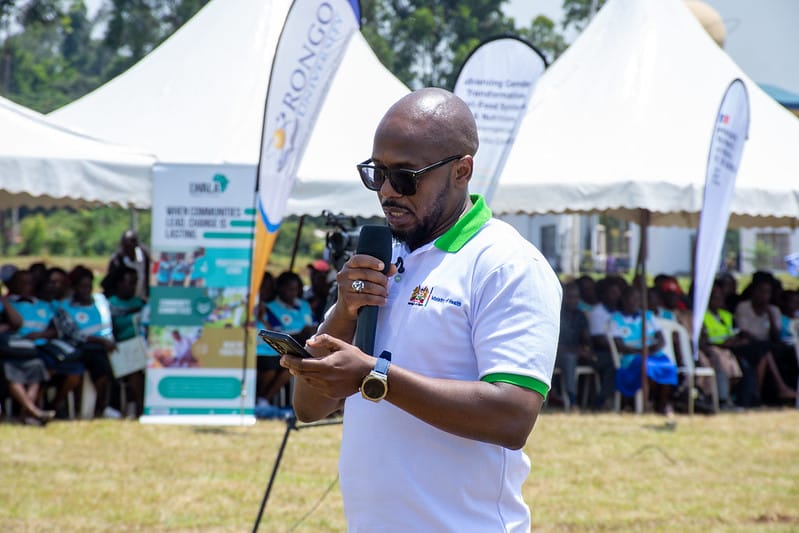By Melisa Mong’ina
A child’s first meal immediately after birth is usually breast milk, which provides a healthy start of life. Infants should be exclusively breastfed for the first six months of life to achieve optimal growth, development, and health as per WHO recommendations. However, for some, this becomes a challenge due to early introduction of complementary foods at an early age, poor sanitation, and lack of skilled support.

According to the World Health Organization (WHO), breastfeeding can prevent over 820,000 child deaths and 20,000 maternal deaths each year globally. It supplies infants with essential nutrients, strengthens their immune systems, and reduces the risk of illnesses like diarrhea and pneumonia; two major killers of children under five.
Mothers also benefit through reduced risks of postpartum depression, type 2 diabetes, and breast and ovarian cancer. Infants should receive nutritionally adequate and safe complementary foods, while continuing breastfeeding up to two years of age or beyond.
The 2022 Kenya Demographic and Health Survey (KDHS) reports that 61% of infants under six months are exclusively breastfed, a slight decline from 61.4% in 2014.
However, in Migori County, the exclusive breastfeeding rate stands at 52%, with challenges such as misinformation, cultural beliefs, lack of skilled support, and early introduction of complementary foods contributing to suboptimal practices.
Commemorating World Breastfeeding Week 2025, the Kenya Red Cross Society (KRCS) has collaborated with families, governments, and health partners in Migori County to advance this year’s theme, “Prioritize Breastfeeding: Create Sustainable Support Systems,” and to reaffirm its commitment to enhancing maternal and child nutrition through innovative support systems.
Dorothy Anjuri, Head of Health, Nutrition, and Social Services Department at KRCS, highlighted the importance of breastfeeding in children, stating that it is crucial for their development and health.

“The first 1,000 days of life from conception to a child’s second birthday represent a critical window for brain development and long-term health. Breastfeeding is the foundation,” said Anjuri.
She further emphasized their goal of ensuring that mothers breastfeed their children in comfortable and conducive environments, adding that breastfeeding is everyone’s responsibility.
“Our focus is to build systems at the hospital,
household, and community level so that mothers receive the information, encouragement, and care they need to breastfeed successfully. When we invest in breastfeeding, we are investing in a healthier future for our children, families, and the nation at large. This week is a reminder that breastfeeding is not just a mother’s responsibility, it is indeed everyone’s business,” she added.
Through national coordination and alignment with policies like the National Maternal, Infant and Young Child Nutrition (MIYCN) Policy, KRCS has joined the Ministry of Health (MoH) in promoting breastfeeding as a public health priority and integrating it into primary healthcare and nutrition programs.
Additionally, as a pillar of community health systems, Community Health Promoters (CHPs) supported through capacity-building by KRCS, play a pivotal role in household-level breastfeeding education, behavior change communication, and early detection of feeding problems, especially in rural and underserved areas.
Joe Mbalu, Deputy Secretary General – Programs at the KRCS, noted the significant role of access to clean water and sanitation in safe breastfeeding practices, food preparation, and infection prevention.

He mentioned that KRCS offers Water, Sanitation and Hygiene (WASH) education to overcome sanitation-related challenges that can hinder infant feeding.
“As first responders, we protect, promote, and support breastfeeding, only during emergencies but in our long-term health, nutrition, WASH, and livelihood programs. We commit to continue training our staff and volunteers to provide infant and young child feeding support in emergencies, because in a crisis, breast milk can be more valuable than clean water,” said Mbalu.
Verah Nyaura, WASH Manager at KRCS, underscored the importance of clean water and safe environments, especially in supporting mothers during breastfeeding.
“We know that poor hygiene, unsafe water, and foodborne illnesses can quickly derail a mother’s breastfeeding journey. Our WASH interventions go hand-in-hand with breastfeeding programs, because good nutrition is not possible without clean and safe environments,” said Nyaura.
It is also important for fathers to take an active role by sharing domestic duties, accompanying mothers to clinic visits, and advocating for supportive policies so mothers feel more confident and supported.
“When fathers take part in this journey everyone wins. The success of breastfeeding hinges not just on a mother’s will but on the environment around her,” said Veroline Danga, a community health assistant, Kobala Community Unity, HomaBay County. She added that support from husbands, families, and communities is crucial in ensuring the success of breastfeeding journeys.hange within their communities and beyond.
